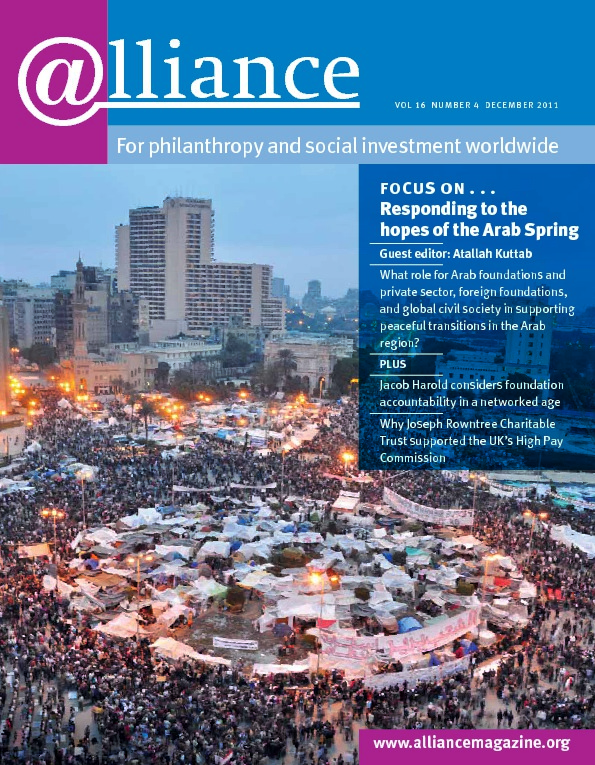The Arab Spring will no doubt influence all aspects of life in the Arab region, including philanthropy. Historically, endowments for much-needed social services like education and health services provided a sustainable approach for giving, mostly religious-based. However, more recently giving has been mainly charity-oriented, mostly state-sponsored, ill-studied and patronizing.
Recent moves to build the infrastructure of philanthropy in the region have envisaged gradual progress, but this year’s events have shown that this is not enough. In today’s climate, people are demanding justice and ‘ownership of the agenda’. This will require a new level of transparency in donor-grantee relations, and western foundations will require local guidance to ensure that what they are offering fits local needs rather than the donor’s agenda.
The philanthropy thrust in recent years, driven by a surge in private sector foundations, has been guided mainly by an Anglo-Saxon discourse not rooted in the local culture. My efforts over the last six years to build the infrastructure of philanthropy, through institutions like the Arab Foundations Forum and SAANED for Philanthropy Advisory in the Arab Region, have had the modest aim of fostering the ability to learn from other regions, redeveloping the local discourse, and reinvigorating local traditions and practices to enable the local philanthropy sector to find sustainable solutions to the chronic problems of the region: the lack of relevant education, high youth unemployment, the absence of democracy, the lack of space for citizens to express themselves, etc. Progress, if any, was supposed to be gradual and undramatic. But the Arab Spring showed that Arabs couldn’t wait.
The wave of protests across the Arab region triggered by events in Tunisia last January has become a ‘Tunisami’, moving from one country to another. Having denied them for many years, some governments are allowing reforms to establish the basic rights of citizens while others are still fighting to cling to the old ways. Young people aged 15-24 represent more than a third of the population of the region, and they are the ones who continue to be at the eye of this Tunisami. What has happened in the last few months in the Arab region was more than the cumulative changes that have taken place in the last 50 years. For the first time in their modern history, Arab societies are demanding, as Fateh Azzam argues in his article, that the principles and standards of human rights constitute the substantive content of ‘justice’ that they should enjoy as a right.
Subscribe now from only £45 a year!
This article is only available for our subscribers
Existing users can login here





